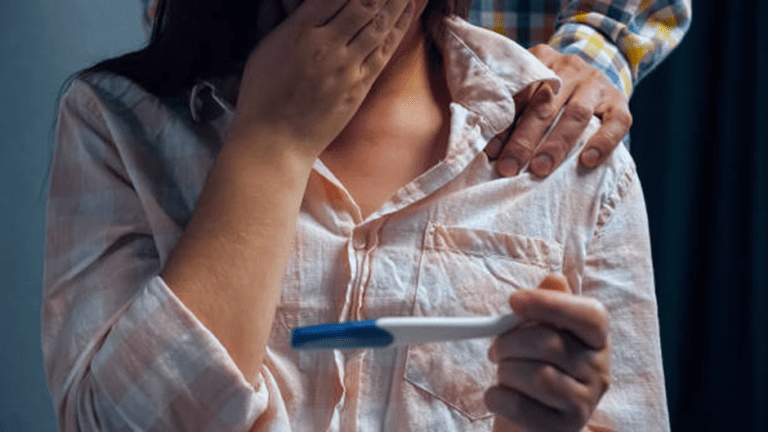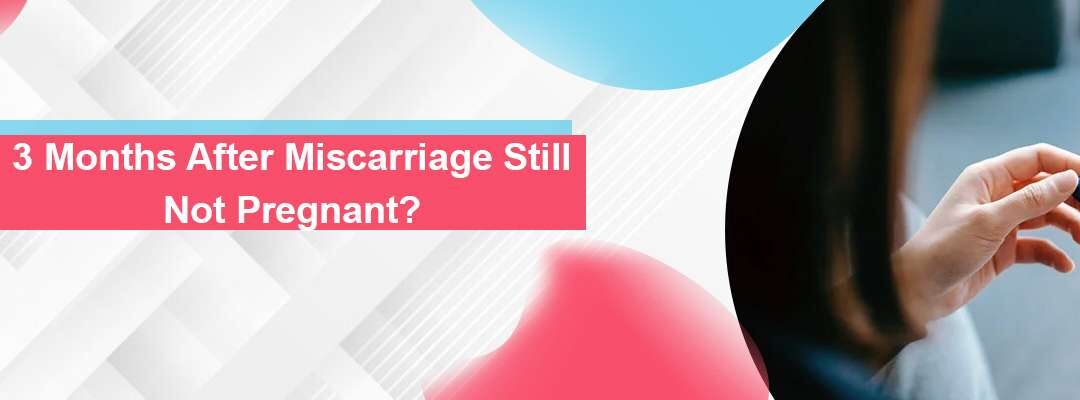Have you experienced a miscarriage?
If it is three months after miscarriage still not pregnant, then you can seek gynecologic consultation from an experienced IVF specialist in Mumbai like Dr. Mohit Saraogi.
Experiencing a miscarriage can be emotionally challenging for any woman or couple. It is essential to acknowledge that healing takes time, both physically and emotionally. After such a loss, hoping to get pregnant in the following months is natural.

However, when three months have passed and there are still no signs of pregnancy, it can lead to feelings of frustration and concern. It may be helpful to seek professional guidance, explore the possible reasons behind this delay, and take steps toward a healthy pregnancy.
Dr Mohit Saraogi, an esteemed IVF specialist in Mumbai, is dedicated to providing comprehensive services to address infertility concerns, including cases following a miscarriage. As part of the reputable team at Saraogi Hospital, which is widely recognized as one of the best IVF centres in Mumbai, Dr Saraogi combines his expertise with a compassionate approach to offer personalized treatment plans tailored to each patient’s unique needs, ensuring the highest chances of successful conception.
In this article, we will explore the reasons behind not getting pregnant after a miscarriage and provide some insights into what steps can be taken.
Understanding Miscarriage

Miscarriage is the loss of pregnancy before the 20th week of gestation. It is essential to understand that miscarriages are more common than people realize. Approximately 10-25% of pregnancies end in miscarriage. The loss can be particularly difficult for couples eager to start or expand their families.
3 Months After Miscarriage and Still Not Pregnant – Reasons:
Some factors that may contribute to not getting pregnant after three months following a miscarriage include:
1. Hormonal Imbalance:
Hormonal imbalances and underlying health conditions, such as polycystic ovary syndrome (PCOS), thyroid disorders, or reproductive system abnormalities, can disrupt the regular menstrual cycle and ovulation, making it more challenging to conceive.
2. Emotional Healing:
The emotional toll of a miscarriage can impact a woman’s mental well-being and potentially affect her fertility. Stress, anxiety, and grief can interfere with the body’s reproductive processes.
3. Physical Recovery:
It takes time for the body to heal after a miscarriage. The uterus needs to regain its strength. The hormonal balance must stabilize before ovulation.
4. Age:
Age can play a crucial role in fertility. As women age, the quality and quantity of their eggs decrease. It can impact the chances of conception.
5. Partner Factors:
It is essential to consider that fertility issues may not be solely related to the woman. Male factors, such as sperm quality and count, can also contribute to difficulties in conceiving.
How many days after the miscarriage does one get pregnant?
“It is important to remember that getting pregnant after a miscarriage can take time. There is no specific timeline for conception. The duration it takes to conceive again can vary from person to person, explains Dr Mohit Saraogi, one of the leading IVF specialist in Mumbai.”
Generally, it is possible to conceive as soon as two weeks after a miscarriage. However, it is important to note that the timing can be influenced by factors such as the woman’s menstrual cycle and the body’s physical recovery process.
Following a miscarriage, the body needs time to heal physically and emotionally. The uterus needs to shed the remaining tissue from the pregnancy. The hormonal balance may take some time to normalize.
Often fertility specialists recommend waiting until after the first menstrual cycle following a miscarriage before attempting to conceive again. This allows the body to recover fully and increases the chances of a healthy pregnancy.
Signs of Miscarriage
Recognizing the signs of a miscarriage is essential. Common miscarriage symptoms may include:

- Vaginal bleeding: This can range from light spotting to heavy bleeding.
- Abdominal pain or cramping: Sharp or dull pain in the lower abdomen or back.
- Passing tissue: Expulsion of blood clots or tissue from the vagina.
- Decreased pregnancy symptoms: A sudden decrease in symptoms like breast tenderness or morning sickness.
- Back pain: Persistent or severe pain in the lower back.
- Absence of fetal movement: It stops abruptly if you previously felt fetal movement.
“If you experience any of these signs, it is essential to seek medical attention promptly to confirm the status of your pregnancy, advises Dr. Mohit Saraogi.”
What Precautions Should One Take to Prevent Miscarriage?
While some miscarriages occur due to factors beyond our control, certain precautions can help minimize the risk. Maintaining a healthy lifestyle, including regular exercise, a balanced diet, and avoiding harmful substances like tobacco and alcohol, can promote a healthier pregnancy.
Also, managing chronic medical conditions, addressing hormonal imbalances, and seeking prenatal care is essential to prevent miscarriages. It is important to note that these precautions do not guarantee prevention of miscarriage.
Can I Rely on a Pregnancy Calculator to Check if I’m Pregnant After a Miscarriage?
Pregnancy calculators are tools that estimate a woman’s due date based on the first day of her last menstrual period. They are not designed to determine pregnancy immediately after a miscarriage. However, they may not accurately predict conception after a miscarriage since they rely on the regularity of a woman’s menstrual cycle.
Therefore, relying solely on a pregnancy calculator may not provide accurate results in determining if you are pregnant after a miscarriage. You should consult a healthcare provider for a more reliable assessment.
A healthcare professional can perform a physical examination, evaluate your medical history, and conduct appropriate tests to confirm pregnancy.
Conclusion
Experiencing a miscarriage can be heartbreaking. The subsequent delay in conceiving can add to the emotional strain. At Saraogi Hospital, one of the best IVF hospital in Mumbai, Dr Mohit Saraogi and his team provide comprehensive care and support to individuals navigating through this challenging period. By understanding the reasons behind the delayed conception and seeking expert guidance, couples can increase their chances of achieving a successful pregnancy.
Frequently Asked Questions
What are the reasons for not conceiving after a miscarriage?
Several factors can contribute to difficulties conceiving after a miscarriage, such as hormonal imbalances, physical and emotional recovery, stress, or underlying fertility issues. Consulting with a fertility specialist can help identify any potential barriers to conception.
What are some tips for getting pregnant after a miscarriage?
- Give yourself time to heal emotionally and physically.
- Maintain a healthy lifestyle and follow a balanced diet.
- Track your menstrual cycle and identify fertile days using ovulation tests.
- Seek emotional support and consider professional counselling if needed.
- Consult with a fertility specialist for personalized advice.
What are the signs of infertility after a miscarriage?
Persistent difficulty in conceiving after a miscarriage could indicate underlying infertility issues. Signs may include irregular menstrual cycles, abnormal hormone levels, or structural abnormalities in the reproductive system. You should consult a fertility specialist for potential causes and treatment options.
Is getting pregnant after a miscarriage the same as getting pregnant after an abortion?
Getting pregnant after a miscarriage and getting pregnant after an abortion are two distinct situations. While a miscarriage is a spontaneous pregnancy loss, an abortion is a deliberate termination. The physical and emotional aspects of these experiences may differ. But seeking appropriate medical advice and support in both cases is essential.

